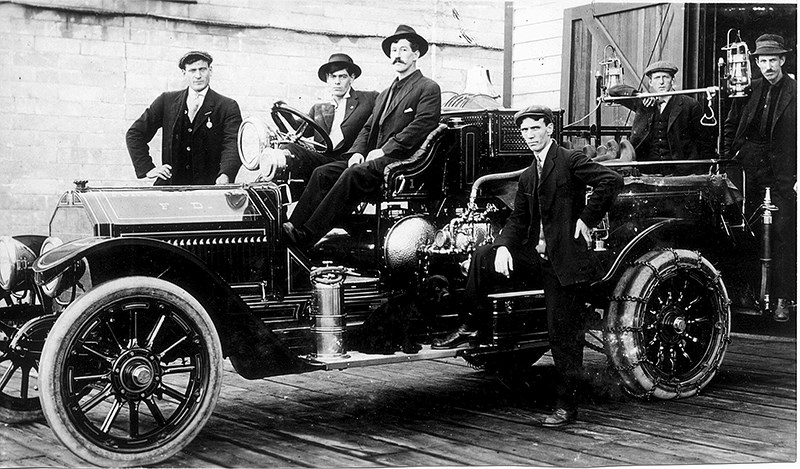The summer of 2015 has, so far, been one of the hottest and driest on record, prompting many of us to try to recall a year from the past when we sweltered under similarly unusual weather conditions.
Lost in the pages of the past is the story of one of those years and how the new city of Port Coquitlam, faced with adversity and hardship, fought back with equal courage and determination — and with the help of an old friend.
The spring of 1914 found PoCo and the surrounding area under a dense blanket of smoke from the numerous forest fires burning through the extensive timber limits north of the city. The tinder-dry conditions also extended to the Broadway Flats, where brush fires on Kingsway Avenue gutted two newly built homes of the Coquitlam Terminal Company, and had the Leeper family and their young baby narrowly escaping the advancing flames.
The high wind conditions had Port Coquitlam fire chief Thomas and his volunteer brigade valiantly trying to combat the raging fires while his counterpart, chief Pare of the district of Coquitlam, and his men faced a similar situation to the north in east Coquitlam.
By Friday, May 22, the flames were advancing at an alarming rate along the mountain slopes northwest of the Minnekhada ranch, and threatened the nearby Pollard and Vilstrup ranches as well.
It was a surreal scene long-remembered by the area’s early pioneers. Wild animals were seen scurrying for safety as the tall fir and cedar trees quickly flared and burned like torches; the thick pall of dense smoke hung like a shroud, blocking out the sun, just barely visible as a bright red orb in the sky.
A large number of Japanese shingle mill workers and their families were seeking safety on the shores of Coquitlam Lake while the small community centred at the Coquitlam dam was preparing to evacuate.
The logging trains were pressed into service to carry to safety those at the camp not fighting the fires while, further south around Victoria Drive in neighbouring PoCo, school trustee Reginald Mounce and his family, like others, were making preparations to fight the fires to save their homes from destruction.
Neighbours formed bucket brigades, and wet blankets and ladders were handy to smother any burning embers that might land on the roofs of their dwellings.
Luckily, within several days, the fire brigades of both cities, along with the combined help of citizens and some welcome rain, soon brought the fires under control.
Divided by politics just the year before in 1913, when Port Coquitlam seceded from Coquitlam, the two northside communities gathered as one to meet nature’s fury, and together they won.
That’s what friends are for.
---Your History is a column in which representatives of the Tri-Cities’ heritage groups write about local history. Bryan Ness is with the Port Coquitlam Heritage Society.



